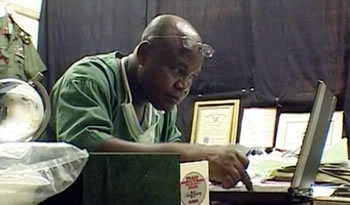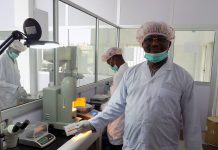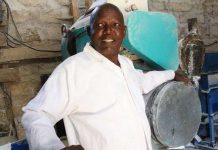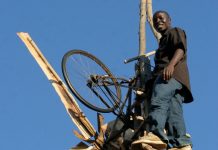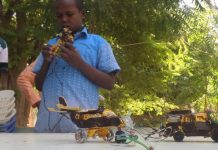(A column highlighting scientific, technological, engineering, and design innovation in Africa)
In 1989, Brigadier General Otu Oviemo Ovadje, a medical doctor in the Nigerian Army, invented the Emergency Auto-Transfusion Set, or EAT-SET, an affordable device to stem potentially fatal internal hemorrhaging.
In an environment where there is no access to blood transfusion services, or where patients cannot afford blood from laboratories or blood banks, EAT-SET reuses the patient’s own blood through a technique known as autotransfusion. The device facilitates the recovery and filtration of lost blood and subsequent re-transfusion back into a patient. It can be used even in the absence of electricity.
Developed at the research facilities of Military Hospital Ikoyi Lagos, with support from the United Nations Development Program and World Health Organization, EAT-SET is primarily used in cases of ruptured ectopic pregnancy and accidents resulting in serious blood loss. By using the patient’s own blood, it prevents the transmission of infection and disease, as well as immunological complications arising from incompatible transfusions.
Dr. Ovadje established EATSET Industries Ltd. in 2001 to facilitate commercialization of his invention. Currently, the Eat-SET device is commercially produced in a joint arrangement First Medical and Sterile Products, located in Nigeria’s Calabar Free Trade Zone. EATSET Industries has attracted public and private investors alike. In addition to the EAT-SET device, it designs a range of affordable medical tools for use in African and other developing countries.
EAT-SET holds patent protection from the African Intellectual Property Organization (OAPI) and in nine African countries, as well as trademark protection in nine countries.
Dr. Ovadje, now retired from the Nigerian Army, was trained at the Lagos University Teaching Hospital and the University of Benin Teaching Hospital. He is a Fellow of the Medical College of Anesthesiology and West African College of Surgeons; member of the Association of Military Surgeons of the Federal Republic of Austria; and a life member of the Association of Military Surgeons of the United States (AMSUS).
In 1995, Dr. Ovadje was named the best African Scientist and was awarded the 1995 World Intellectual Property Organization/Organization of Africa Unity (WIPO/OAU) gold medal for scientific work designed to save women who usually die from abnormal pregnancy. Subsequent honors include the World Health Organization’s 2000 Sasakawa Health Prize; the 2000 World Bank Institute Award; and the 2002 J.P. Morgan Chase Health Award.


